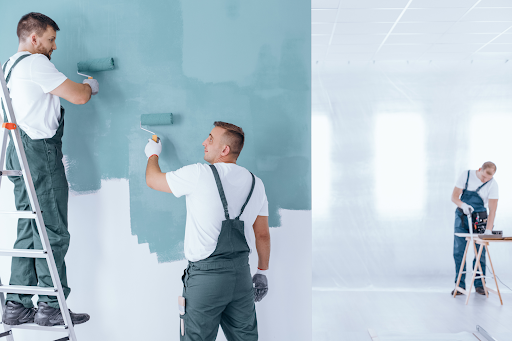So You Want to Flip Houses? Here’s How to Get Started
Are you interested in flipping houses, but don’t know where to begin? You’re not alone! It can be difficult to get started flipping houses without years of experience under your belt, but it’s entirely possible to start making money with house flipping as long as you put the right plans into action. Follow these steps below and you’ll be well on your way to making money selling houses.
Real estate investing 101
If you’re new to investing in real estate, start by identifying the type of real-estate investing that interests you. Whether it’s flipping a house, renting an apartment building, or just buying and selling properties, there are various ways for any skill level and any budget to invest in the housing market.
The pros and cons of real estate investing
The biggest pro of flipping houses is that you can make a good living if you know what you’re doing. At the same time, it takes some serious money and savvy business sense to be successful in this line of work. If you have no experience with construction or renovation, then it might be difficult for you to get a loan to start. That said, there are plenty of resources out there and many programs dedicated specifically to real estate investors such as the courses at HousingTrends University.
Where can you get the cash needed to invest?
The first question is often the hardest: where can you get the cash needed for your first house flip? To answer this, think about what equity or liquid assets you already have. Perhaps you have a 401k that is earning market interest, and don’t want to tap into it yet. Or maybe there are some stocks in your account that haven’t seen any movement in a while, and they would make a decent contribution. Consider borrowing against your home – though this has its own risks, including the possibility of foreclosure if the value of your home declines below what you owe on it.
Do your homework before you buy
Start by do your homework. The internet is a great place to get ideas and get an understanding of what houses are worth in the area you are looking at. But, it’s only the beginning of your research process. The more you learn about potential profit margins, comparable properties and neighborhood trends, the better prepared you will be when it comes time to find a house. Talk with lenders as well because they have access to detailed property values that may not be available publicly.
Find motivated sellers (because no one wants to sell their home)
In order to buy a home, you will need sellers willing and ready to sell. A great way of finding motivated sellers is by understanding their motivation. What are the main reasons people want or need to sell their homes?
Prepare yourself psychologically for this kind of business
Before you can actually start the flipping process, there are a few mental prep steps that need to happen first. These steps will help get your mind set for the financial and emotional roller coaster ahead. With these things in place, you’ll be ready for the ins and outs of house flipping.
Start with deciding if you have the finances necessary to go through with this process.
Compare costs when it comes time to sell
The three most important expenses when it comes time to sell a home are the costs of repairs, real estate commissions, and closing costs. When determining how much money you will need in order to make your profit, it is important that you know the expected cost for each of these. In my experience, average repair costs were $10,000 and average real estate commission was 6% or 7%. This means that I would have had an average monthly loss of around $1,333. Closing cost can vary between 3-5% which meant I would have had an additional monthly loss of about $125-$166.
At the end of two years that would have been a total annual income loss from these 3 costs in the range of $7167-9500!









